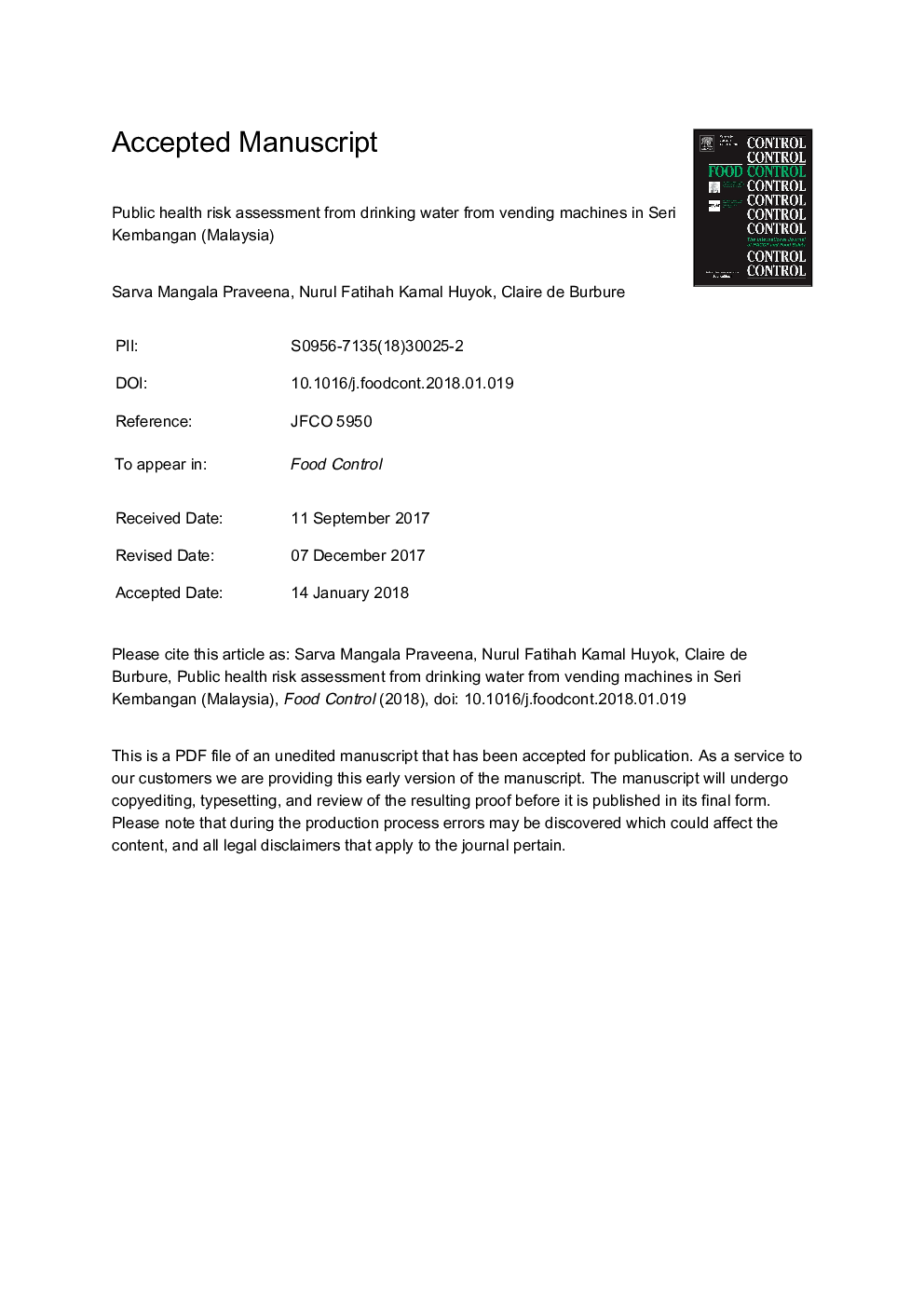| Article ID | Journal | Published Year | Pages | File Type |
|---|---|---|---|---|
| 8887881 | Food Control | 2018 | 26 Pages |
Abstract
This study investigated the public health risk linked with microbial quality of drinking water from vending machines in Seri Kembangan city (Malaysia) using epidemiological and Quantitative Microbial Risk Assessment (QMRA) approaches. This study was also conducted to understand associations between reported health symptoms and daily water intake information. Following WHO guidelines on water safety, QMRA were performed was to estimate burden of disease from E. coli from water vending machines. Triplicate drinking water samples from water vending machines were collected from six sampling areas around the city, analysed for E. coli, information of health symptoms and daily water intake was obtained from 121 respondents by questionnaires. The results indicated the highest numbers of E. coli levels were found in Seri Serdang (45-68â¯CFU/100â¯mL) and Taman Pinggiran Putra (45-62â¯CFU/100â¯mL). Escherichia coli levels in drinking water samples from water vending machines obtained from Seri Serdang, Taman Pinggiran Putra, Taman Equine, Balakong and Serdang Jaya exceeded both Malaysian Drinking Water Quality and WHO Drinking Water Quality guidelines. Reported health symptoms were only significantly linked to brand which likely to be associated with regular maintenance of water vending machine. All the drinking water samples from water vending machines except from Lestari Perdana have exceeded the health based target outcomes by QMRA. Combination of epidemiology and quantitative microbial risk assessment have provided a clear understanding of public health risks and gateway for a better management of water vending machines.
Related Topics
Life Sciences
Agricultural and Biological Sciences
Food Science
Authors
Sarva Mangala Praveena, Nurul Fatihah Kamal Huyok, Claire de Burbure,
